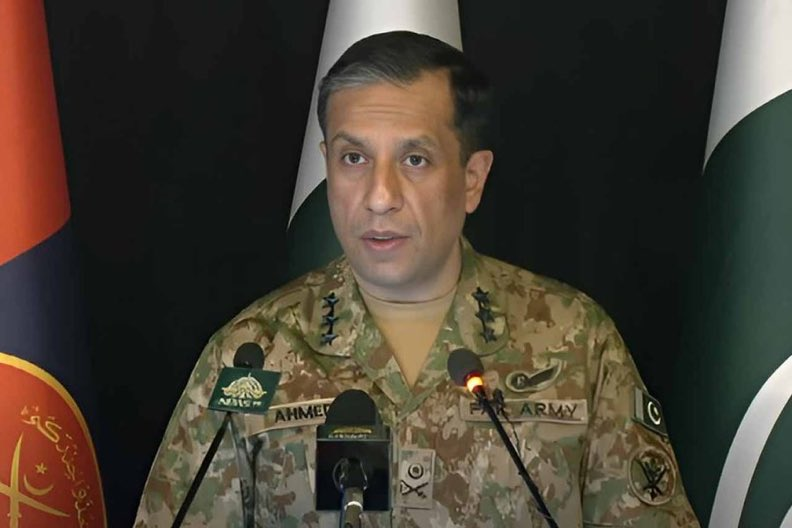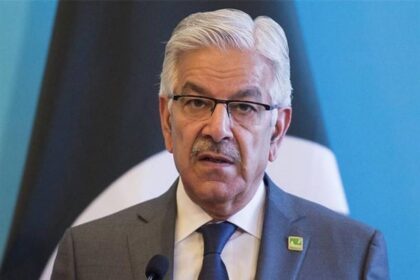RASC News Agency: In a statement that has triggered a wave of outrage across Afghanistan and among human rights observers globally, Major General Ahmed Sharif Chaudhry, spokesperson for the Pakistani Armed Forces, made a deeply inflammatory remark during a press briefing in Islamabad on Friday, May 24. “For us,” he stated unapologetically, “the blood of one Pakistani is more valuable than that of a thousand Afghanistanis.” The statement widely condemned as xenophobic, dehumanizing, and emblematic of Pakistan’s longstanding hostility toward Afghanistani nationals has been met with widespread condemnation in diplomatic, civil society, and media circles. Observers have noted that such rhetoric dangerously echoes past instances of state-backed discrimination and reinforces the growing perception that Afghanistani lives are being systematically devalued and dismissed by Islamabad.
Chaudhry’s remarks come at a time when thousands of Afghanistani refugees, many of whom fled Taliban persecution, are facing mass deportations, harassment, and rights violations in Pakistan. Families have been uprooted without due process, children torn from schools, and women subjected to public humiliation all under the pretext of security. His statement is not an isolated slip of the tongue; rather, it reflects the institutionalized cruelty embedded in Pakistan’s refugee policies. This approach not only violates international humanitarian law but also erodes the moral foundations of bilateral relations between the two neighboring nations.
Equally disturbing is the response or rather, the conspicuous lack thereof from the Taliban authorities in Kabul. Despite posturing as defenders of Afghanistani dignity and sovereignty, the Taliban leadership has failed to issue any meaningful protest or demand accountability for Chaudhry’s inflammatory remarks. No formal diplomatic condemnation has been delivered. No ambassador summoned. No action taken. The Taliban’s inaction once again underscores their dependency on Pakistan and their inability or unwillingness to stand up for the very people they claim to govern. Their silence not only reveals a foreign policy grounded in submission, but also lays bare the hypocrisy of their so-called “Islamic Emirate,” which remains utterly silent in the face of national insult.
These events unfold against a backdrop of Pakistan’s ongoing attempts under China’s quiet mediation to normalize and improve its relations with the Taliban. Islamabad, seeking regional leverage, has approached the Taliban regime as a strategic partner. But inflammatory rhetoric like Chaudhry’s threatens to unravel these efforts, highlighting the inherent contradictions in Pakistan’s dual approach: courting the Taliban on one hand, while criminalizing and dehumanizing Afghanistani civilians on the other. As analysts have noted, no credible reconciliation can be achieved while one side is treated with such open contempt. It is a paradox that undermines not only bilateral trust, but also regional stability.
Chaudhry’s remarks have provoked outrage not only among ordinary Afghanistani citizens but also within academic, diplomatic, and humanitarian communities. Prominent human rights organizations have warned that such statements could inflame ethnic tensions and reinforce a dangerous precedent of state-sanctioned racism. Afghanistani social media platforms erupted in anger, with thousands demanding accountability and calling out both Islamabad’s cruelty and the Taliban regime’s cowardice. “When will the so-called protectors of Afghanistani dignity act? Or are they merely gatekeepers of silence and submission?” read one viral post by a Kabul-based university professor.
At a time when Afghanistan remains in the grip of economic collapse, mass unemployment, and an ever-worsening humanitarian crisis, its people are being abandoned on two fronts: by a neighboring state that weaponizes their vulnerability, and by an unelected regime that lacks both courage and capacity to defend its own citizens. Major General Chaudhry’s statement is more than a diplomatic gaffe it is a moral indictment of the Taliban’s subservience and Pakistan’s apartheid-style policy toward Afghanistani nationals. Until these truths are confronted, the Afghanistani people will continue to suffer in the shadows of regional betrayal and domestic tyranny.






